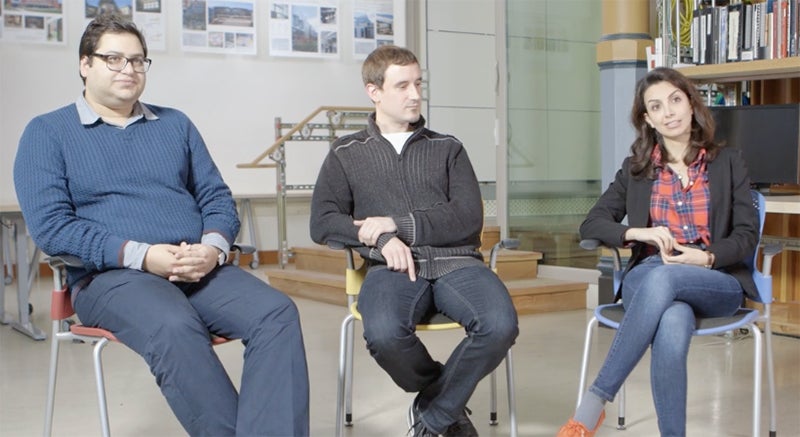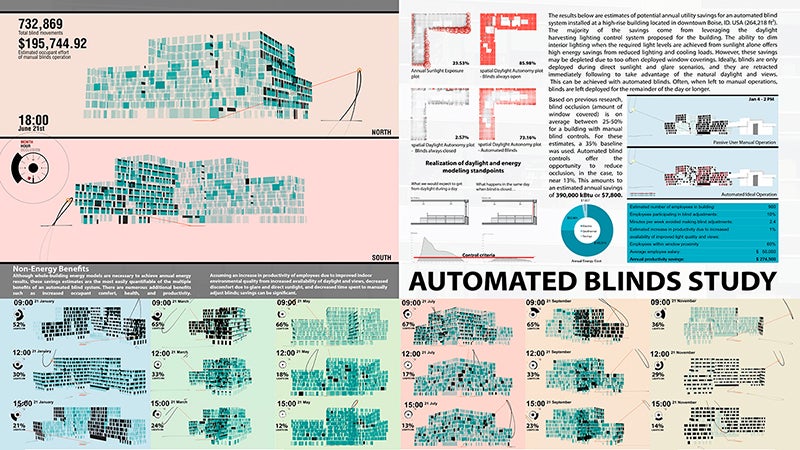A team of UO architecture scholars has won a global prize for research into how daylight affects us at work and how window blind design can provide a more comfortable, productive workplace.
UO architecture PhD student Amir Nezamdoost and research assistant Alen Mahic won the Regional Award for The Americas in the International VELUX Award for Students of Architecture competition, presented recently at the World Architecture Festival in Berlin.
Malak Modaresnezhad of the University of North Carolina at Greensboro is the third member of the team. Mahic and Nezamdoost previously attended University of Idaho, where the team’s faculty adviser, Kevin Van Den Wymelenberg, taught before coming to UO to direct the Energy Studies in Buildings Laboratory.
Nezamdoost previously won two daylighting competitions: the International VELUX Award 2016 for students of architecture in the Americas region for his investigations into automated blinds in daylight investigations; and best student paper at SimBuild 2016 for his research on daylighting simulation. The first VELUX award made him eligible to enter the global competition.
The team’s research estimates an annual savings of 390,000 kBtu, or $7,800 using automated blind controls over manual controls in a high-rise building in Boise, Idaho. The advantage over the automated controls is that manual blinds tend to remain closed longer throughout the day than automated blinds, which retract to take advantage of natural daylight.
The non-energy benefits, or annual productivity savings, equate to $274,500 per year, Nezamdoost said.
“There are numerous additional benefits such as increased occupant comfort, health, and productivity,” he said. “Savings can be significant—assuming an increase in productivity of employees due to improved indoor environmental quality from increased availability of daylight and views, decreased discomfort due to glare and direct sunlight, and decreased time spent to manually adjust blinds.”
A video about the team’s research shows how the automated blinds maximize light and views in an office building to enhance productivity and save energy.
International VELUX Award: Automated Blinds Study from veluxusa on Vimeo.
Since first appearing in 2004, the International VELUX Award has grown into the largest global student award within architecture, with outreach to more than 350 schools of architecture in 60 countries and a collection of 4,000 projects submitted since the first award in 2004.
“The award has a special focus on architecture for health and well-being. We want to encourage students to take up the challenges faced by cities and societies, where daylight and architecture can foster change through better and healthier living environments,” said Per Arnold Andersen of the VELUX Group.

Above: Team members Amir Nezamdoost, Alen Mahic, and Malak Modaresnezhad.

